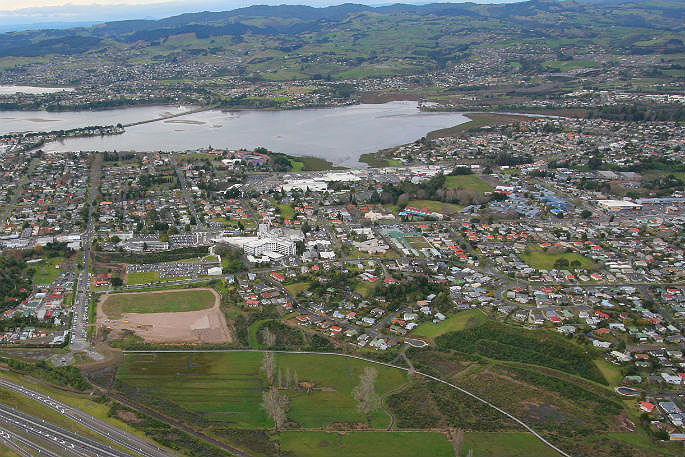The list of towns, cities, and regions hitting double-digit home value declines in 2022 is growing.
Wellington (-17.6 per cent) is headlining a list of main centres that now also includes Auckland (-11.7 per cent), Hamilton (-10.5 per cent), Napier (-11.6 per cent), Hastings (-11.5 per cent), Palmerston North (-13.7 per cent), and Dunedin (-10.4 per cent).
The latest QV House Price Index shows the average home decreased in value by 3.9 per cent over the three months to the end of October – an improvement on the 5.4 per cent quarterly reduction reported at the end of September – with the national average now sitting at $951,040.
That figure is 5.1 per cent lower than the same time last year and now 9.7 per cent lower than at the start of this calendar year.
Tauranga's average rate of home value decline has slowed this quarter but it remains quicker than the national average.
The city's average home value dropped 5.8 per cent to $1,068,458 in the three months to the end of October 2022, which is an improvement on the 7.7 per cent quarterly decline reported in last month's QV House Price Index.
Home values have fallen by an average of 3.9 per cent nationally over the same period, with values down 5.1 per cent nationally since the same time last year, compared to 4.1 per cent in Tauranga.
QV property consultant Derek Turnwald says listing numbers are well above their 2020 and 2021 levels.
He says they declined over the winter months and have begun to pick up again now, as they usually do in spring, when properties typically look better and the weather is more conducive to going to open homes.
'Prospective purchasers are taking longer to deliberate over purchases and there's now much greater room to negotiate prices. Vendors are having to lower their expectations to meet the market, with demand for housing of all values generally subdued in comparison to previous highs.”
Nationally, QV chief operating officer David Nagel says the traditional spring upswing in the residential property market hasn't amounted to much more than a small speed bump this time around, with few pockets of true home value growth to speak of, and only a relatively small decline in the market's downward trajectory these past two months in a row.
'But we have certainly seen a seasonal surge in the number of properties coming on to the market, as spring is often seen as a good time to sell with longer days and summer looming large on the horizon. This has kept downward pressure on prices, especially as interest rates have also risen and are expected to climb further to stifle high inflation.”
The only exception to the rule is Queenstown, where home values increased 2.9 per cent this quarter, with New Plymouth also all-but breaking even with a slight 0.1 per cent reduction in average home value.
All other main urban areas experienced declines of between 1.5 per cent and 6.8 per ceent, with Wellington, Tauranga, and Hastings posting the largest declines in the three months to the end of October.
Across the Auckland region, the average value now sits at $1,348,213, falling 4.4 per cent this quarter, which is a slight improvement on the 5.8 per cent rate of negative home value growth reported in the previous three-month period.
All bar one of the Super City's seven former territorial authorities are now showing negative home value growth annually, with five out of seven also showing double-digit declines for the 2022 calendar year.
'This year couldn't be much more different to the last one for much of Aotearoa New Zealand. At the same time last year, the QV House Price Index was showing an average home value increase of 22.2 per cent throughout the first 10 months of 2021 – now it's showing an average decline of 9.7 per cent over the same period. I can't think of two more starkly contrasting consecutive years in my long career as a registered property valuer.
'Though the average rate of decline has slowed somewhat in recent months, and it may even continue to slow as summer approaches, increasing volumes of listings are giving purchasers plenty of choice and the upper hand when it comes time to negotiate – and wIth interest rates trending upward, no-one is going to willingly service a larger mortgage than they have to. This will likely continue to have a dampening effect on the market for a good while yet.”



0 comments
Leave a Comment
You must be logged in to make a comment.